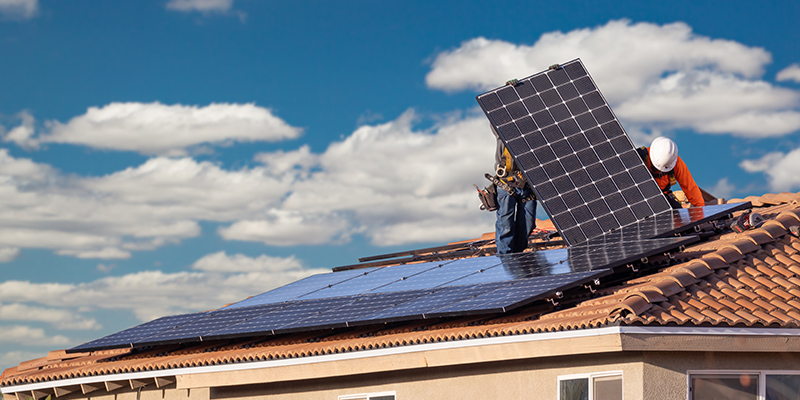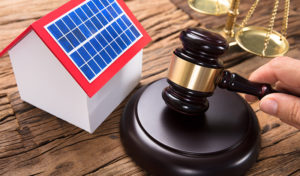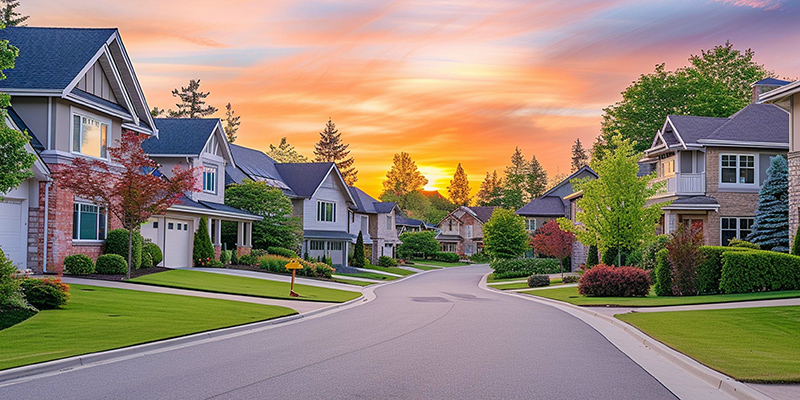HOA Solar Installation: Does The HOA Have The Power To Ban?

Solar panels have always been a point of contention among homeowners and their HOAs. And although there is no federal law protecting the rights of homeowners to go solar, several states have enacted their own. Indiana is only the latest to pass an HOA solar installation law.
Browse By Category
Sign up for Our Newsletter
Solar panels have always been a point of contention among homeowners and their HOAs. And although there is no federal law protecting the rights of homeowners to go solar, several states have enacted their own. Indiana is only the latest to pass an HOA solar installation law.
Governor Eric Holcomb signed House Bill 1196 into law in March of this year, making it harder for homeowners associations to ban HOA solar panel installation. Hoosier HOA residents and clean energy advocates have long been pushing for this law to pass. And, after six years, it finally happened.
Sen. Aaron Freeman first proposed legislation regulating HOA solar panels back in 2017. However, it only ever made its way through the Senate before stalling in the House. It was Rep. Mike Speedy that helped push the bill to succeed.
A Commitment to a Certain Aesthetic
In Central Indiana alone, an estimated half of all homeowners associations explicitly prohibit solar panels in their governing documents. Many more have language that allows them to limit the use of solar panels in the community. Leaders of HOAs stand by the belief that these solar panel restrictions help maintain the aesthetics of the neighborhood. This, in turn, preserves property values. And it is this very same reasoning that has led to the denial of many solar panel applications.
However, thanks to House Bill 1196, homeowners can now petition their HOA boards for the ability to install solar panels. This applies to homeowners who are prohibited or restricted by their bylaws or have received outright denials from their board. Associations can no longer deny homeowners who meet the requirements set forth by the law.
North Carolina Supreme Court Ruling
More recently, the North Carolina Supreme Court ruled in favor of homeowners in Raleigh who sued their HOA, the Belmont Association. The ruling was made on Friday, June 16.
 The issue began in 2018 when homeowners Thomas and Nancy Farwig and Nancy Mainard installed solar panels on the roof of their home. Belmont’s architectural review committee ordered the homeowners to remove the panels. The association even fined the homeowners $50 a day and pursued other legal actions.
The issue began in 2018 when homeowners Thomas and Nancy Farwig and Nancy Mainard installed solar panels on the roof of their home. Belmont’s architectural review committee ordered the homeowners to remove the panels. The association even fined the homeowners $50 a day and pursued other legal actions.
Now, with 4-3 in favor of the homeowners, the Supreme Court has ruled that the association must allow the panels, a project that cost the homeowners $32,000. The court concluded that the association’s covenants do not expressly ban solar panels, which meant that the HOA could not enforce it.
The ruling, which sets a precedent, makes it easier for North Carolina homeowners living in HOA-managed communities to install solar panels on their roofs.
However, the state has long had a solar access law in place. While the law prevents associations from prohibiting solar panels, it does allow them to impose restrictions concerning their placement, among other things. The recent Supreme Court ruling essentially requires these restrictions to be expressed within HOA bylaws or CC&Rs.
Indiana and North Carolina Are Not Alone
As of writing, a total of 25 states have solar access laws that protect the rights of homeowners to solar energy. A majority of these laws prohibit homeowners associations from banning HOA solar panel installation. However, they do allow HOAs to enforce reasonable restrictions.
For instance, Nevada law prohibits associations from imposing a restriction that decreases the performance or efficiency of solar panels by more than 10 percent.
In California, solar access is heavily supported, with three Civil Code statutes protecting this right. Section 714, in particular, prevents associations from banning solar panel installations but permits certain restrictions. Similar to Nevada, California law prohibits restrictions that decrease the efficiency of a solar panel system by more than 10%. It also prohibits restrictions that increase the cost of the installation by $10,000 or 10%.
Solar Access on a Federal Level
HR 2454, known as the American Clean Energy and Security Act, would have granted solar rights to homeowners on a federal level. However, the proposed bill never passed into law. The bill would have made it illegal for homeowners associations to prohibit residents from installing solar panels with some exceptions.
If the bill had passed, it would have overruled any rules that restricted solar panels in HOA communities. With no federal solar protections in place, homeowners have had to rely on state legislators. Even though solar access laws already exist in half of the states, similar legislation may be introduced at the federal level in the future.
RELATED ARTICLES:
- New California HOA Laws Passed In 2021
- 13 Legal Rights Of Homeowners In HOA Communities And FAQs
- Should You Live In A Deed Restricted Community?
Trending Now
Related Article
Sign up for Our Monthly Newsletter
Sign up below for monthly updates on all HOA Resource
















